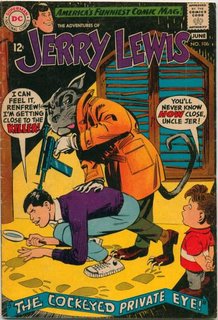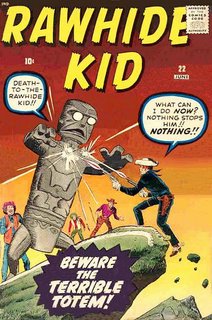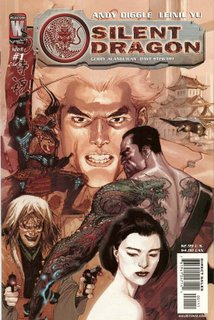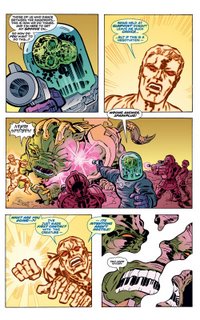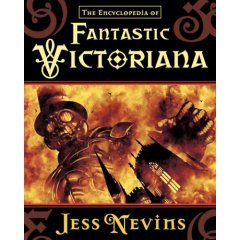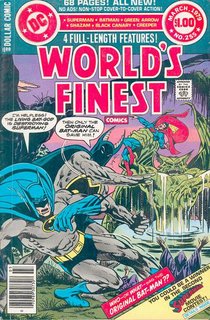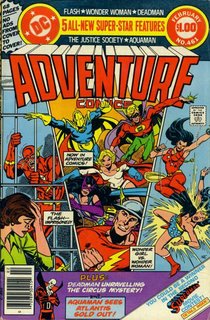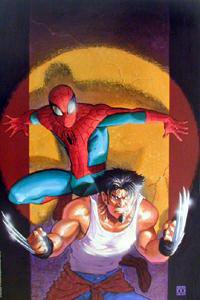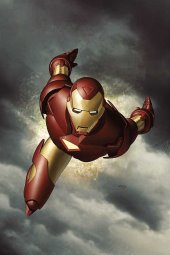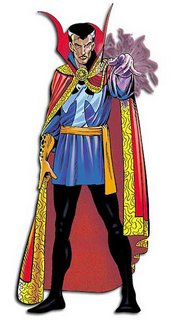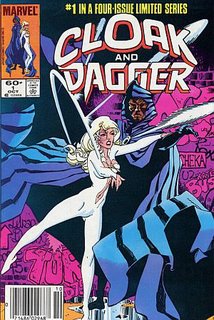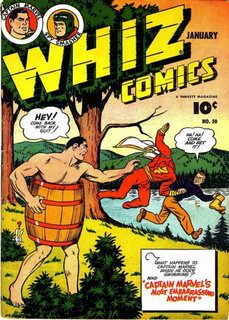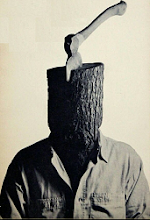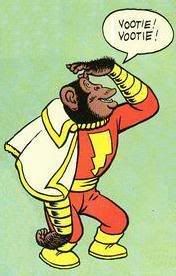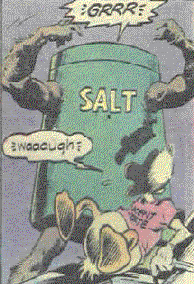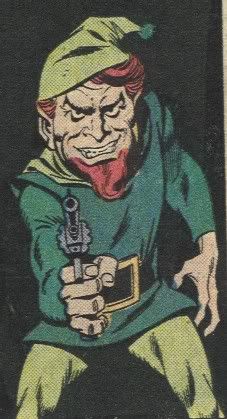Today, November 1st, National Novel Writing Month begins. I'm scared out of my wee mind. Only one in seven NaNoWriMo contestents finishes.
This is when thoughts flit through my head such as "You know, Mother never wanted me to be a writer. She thinks it ungentlemanly. She always wanted me to be...a cowboy."
Ah, well. Time to take my mammoth fear of failure aside, tell it to look out the window and see the pretty birdie, then punch it in the nuts and run.
Whether or not I'll blog much in November is unclear. So in case I'm quiet for a spell, a few brief thoughts.
----------------
I haven't followed
The X-Men since 1986. Never my bag.
Out of curiosity and a string of odd events, I just bought the first two trade paperback collections of Grant Morrison's
New X-Men run from 2001-2003. I've been digging
Seven Soldiers of Victory and none of the other trades in Borders were catching my eye. So what the hell, I figures.
Holy crap, it's excellent.
Okay, most every fanboy who might read this blog probably has an opinion on the Morrison run, but dang it, this is my first exposure. And yea verily, it rocketh.
-----------------
The
Showcase Presents: Superman volume was a great buy. Lots of crazy classic crap from the late fifties in it. Then why don't I read it more?
As much as I love the lunacy of the Silver Age o' Comics, the books are like candy. A piece now and again is great, but damn...five hundred pages?
Even I get tired of giant radioactive monkeys and Lex Luthor turning Jimmy Olsen into a river of maple butter after a few stories. And I'm a man who loves his maple butter.
The
Essential Fantastic Four volumes suffers from a similar problem. I love old-school FF. Desperately. I don't think either Lee or Kirby ever did anything as good as their FF run, and it's a monument to great superhero comics. But damn, I cannot sit down with the volume and read it cover-to-cover. Makes my head hurt.
---------------
At the risk of snark, I was a bit amused at some sniping on messageboards about the recent revision of Dr. Strange's origins in J. Michael Straczynski's miniseries
Strange. I can understand that they didn't like it (it looked terrible to me), but the body of the complaints was kinda funny.
"It's all cliche," they complained. The tough-girl love interest. Wire-fu. The hip, smack-talking mystical master. All very "Matrix-esque," they complained.
True, that's weak. What about the original origin, courtesy of Ditko and Lee in the early sixties? What elements went into it?
An ancient, wizened Asian master of magic in a hidden mountain fortress. The European aristocrat as villain. The graceful and luminous princess of another dimension falling in love with our hero.
Or, as I like to call them, the cliches of a previous generation's popular culture.
You could transpose early Dr. Strange into a bad pulp novel without changing a single thing.
What made the Ditko Dr. Strange stories cool was how he used the cliches as a starting point and created something new and cool. From what I've seen, the "new" Strange never gets past the cliches. It looks downright assy.
If that's why it fails as a story, say that, instead of something quick like "it's cliched." Dig a bit, nail down exactly how it fails. Then you can bust on it a hell of a lot better.
To recycle a bit of imagery, why shove it in the chest when you can kick it in the nuts?
I've got nut-kicking on the brain today.
------------------
A rude idea, sure to generate hate mail:
The "new mainstream" cannot save comics, nor will it.A charming idea of the comiccenti is the belief that the medium of comics would be successful if they (a) were sold in more readily-available places than comic shops and (b) expanded from the traditional boundaries of thirty-two page superhero “pamphlets,” embracing both larger formats and broader genres.
The first point I believe is true, though it glosses over the gigantic risks and costs involved in such a push.
The second point is wishful thinking.
For those unversed in comic dork talk, “New Mainstream” describes any comics that are not superhero books, arty comics, or manga. Westerns, romance, horror, espionage, detective, all of it falls under “new mainstream.”
On first glance, this seems like a perfectly sensible idea.
And it won’t work.
The reason boils down to economics. I can find a good western, romance, or horror story for a fraction of the price of a graphic novel. The intrinsic appeal of seeing a story graphically depicted is not enough to carry the book to a mass audience.
A regular novel is half the price and takes considerably longer to read. Sure, I dig seeing the stories as comics, but even I, a dedicated comic freak, balk at paying fifteen dollars for a mediocre sci-fi or horror story that I can finish in an hour. Dude, I can get mediocre sci-fi and horror for
damn near free on cable television all damn day.Graphic novels cost more than the regular kind. Simple as that. The New Mainstream's ability to overcome the price then lies in two possibilities:
1. The essential appeal of sequential art.
2. Better stories than you'll find elsewhere.
The first factor is not enough. The second factor is, to be charitable, unlikely. It certainly hasn't happened yet, nor is there any reason to expect it will happen in the future.
Comics succeed when they go where
other media can't.Sure, an issue of
Shaolin Cowboy runs me three bucks and I rip through it in about twelve seconds, but dammit, I can't find that combination of visuals, wit, and action anywhere else. Compare that to the Oni graphic novel
The Long Haul, a generic western heist story. I can find something that does exactly what the novel does for less than half the price, and likely does it better.
Look at what comics exist and sell: capes-n-cowls, which can't be matched by movies and teevee yet (one Batman movie takes years and hundreds of millions to make; DC puts out what, six Batman books
every goddamn month) and arty-farty comics, which go in directions that other media simply can't.
I like the idea of the New Mainstream. I do. I've got the new
Jonah Hex series in my pull-list. But I don't think it has a prayer of saving the industry unless it either gets real cheap to buy or consistently produces better work than other media. Neither seems likely.
Comics used to come in a variety of genres and do well, sure. When? In the fifties and sixties. When comics were dirt-cheap and in dimestores everywhere. What they lacked in content they made up in price and ubiquity.
This isn't about art or the satisfaction of comics. This is about cash.
-------------
I really like donuts.
Click here to read more!
